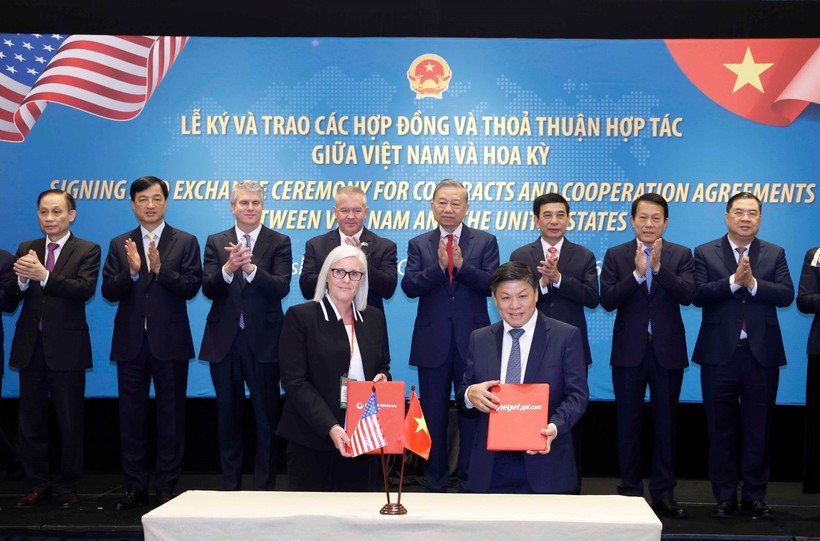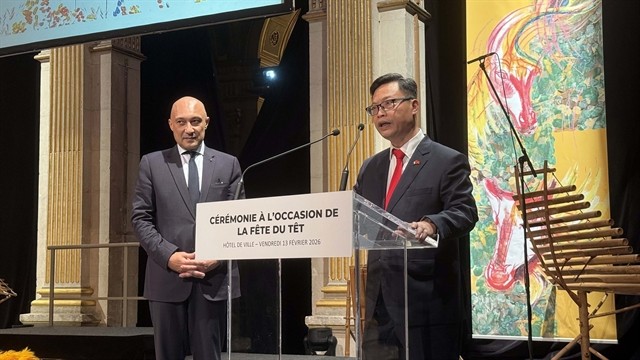Vietnam News Today (Jun. 25): PM Chinh Arrives in Tianjin for World Economic Forum and Working Visit to China
| Vietnam News Today (Jun. 23): Prime Minister Pham Minh Chinh to Attend WEF Annual Meeting of New Champions | |
| Vietnam News Today (Jun. 24): Vietnam Eyes Deeper Cooperation at WEF Tianjin 2025 |
| Vietnam News Today (Jun. 25) notable headlines PM Chinh arrives in Tianjin for World Economic Forum and working visit to China Vietnam–Cambodia relations thriving across all sectors: Cambodian scholar Tropical depression forms in East Sea Five decades of friendship to elevate Vietnam – Mozambique ties: diplomat Vietnam eases citizenship rules for foreign experts, returning nationals Sapa - “Switzerland of Vietnam" captivates RoK travelers PM attends Vietnam – China Business Connectivity Forum Artists, influencers are encouraged to introduce Vietnamese culture to the wider world: Deputy Minister Vietnam elected Chair of 35th meeting of State Parties to UNCLOS |
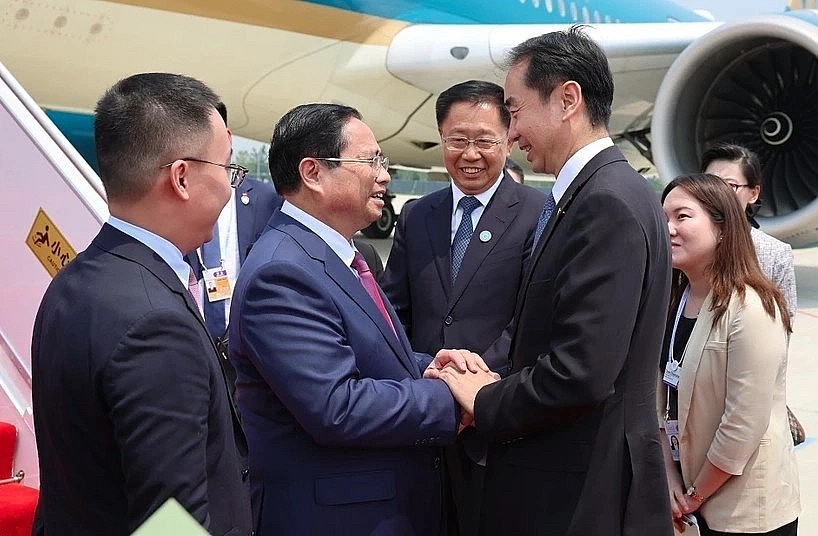 |
| Vietnamese community representatives in China welcome PM Pham Minh Chinh upon his arrival in Tianjin for the WEF meeting and working visit (Photo: VGP) |
PM Chinh arrives in Tianjin for World Economic Forum and working visit to China
At 11:30 a.m. local time on 24 June, the aircraft carrying Prime Minister Pham Minh Chinh and his Vietnamese delegation landed at Tianjin Binhai International Airport, marking the start of his trip to attend the 16th Annual Meeting of the New Champions of the World Economic Forum (WEF Tianjin 2025) and conduct bilateral activities in China.
Those welcoming Prime Minister Pham Minh Chinh and the Vietnamese delegation at Tianjin Binhai International Airport included Vice Mayor Wang Shufeng; Chinese Ambassador to Vietnam He Wei; a liaison officer for the Chinese Premier; Vietnamese Ambassador to China Pham Thanh Binh; staff from the Vietnamese Embassy; and members of the Vietnamese community in China.
This is the first official visit to China by a top Vietnamese leader in 2025, following the successful state visit to Vietnam by General Secretary and President of China Xi Jinping in April. It also takes place as the two countries celebrate the 75th anniversary of diplomatic relations and jointly implement the Year of People-to-People Exchanges.
Under the theme “Entrepreneurship for a New Era,” PM Pham Minh Chinh will attend the opening session, a policy dialogue with the WEF Executive Chairman, a discussion on whether the Asian Century is facing challenges, and other related activities.
Together with leaders of governments, businesses, international organizations, and academia, the Vietnamese Government leader will engage in discussions across five main themes with a focus on decoding the global economy, China’s outlook, industrial transformation, investing in people and the planet, and energy and new materials, according to VOV.
On the sidelines of the forum, PM Chinh is expected to meet with WEF leaders, heads of state and government, and representatives of international organizations to promote cooperation across multiple areas.
Vietnam’s participation in the event reaffirms its consistent foreign policy of independence, self-reliance, multilateralization, and diversification; and its active, proactive approach to comprehensive, extensive, and effective international integration. It also conveys the country’s message of determination and aspiration to enter a new era of national development.
In his bilateral meetings with China, the Vietnamese Government leader will hold talks with senior Chinese leaders; attend the Vietnam–China Business Forum; work with executives of major Chinese corporations; meet with the Vietnamese community and students in China; and visit several economic and social institutions, including a stock exchange and a free trade zone, to study China’s development models.
The PM’s visit will further translate into action the key common understandings reached between the top leaders of the two Parties and countries. It is designed to maintain and build on the positive momentum in Vietnam–China relations, while enhancing Vietnam’s role in global cooperation frameworks and creating new, practical opportunities to support the country’s sustainable and prosperous development in the new era.
Vietnam–Cambodia relations thriving across all sectors: Cambodian scholar
The relationship between the Parties and States of Vietnam and Cambodia has grown deeper and more effective across all fields, becoming a shared asset of both nations and contributing to a peaceful, stable, and long-term development environment, according to a Cambodian scholar.
Uch Leang, Acting Director of the Department of Asian, African, and Middle East Studies under the International Relations Institute of Cambodia at the Royal Academy of Cambodia (RAC), affirmed that the bilateral relationship has developed continuously in a comprehensive manner.
In an article published on Khmer Times on June 24 to mark the 58th anniversary of diplomatic relations between Vietnam and Cambodia (June 24, 1967–2025), the scholar highlighted that over the past 58 years, the two countries have consistently maintained high-level exchanges and promoted cooperation across all areas, from politics, security and defence to trade and people-to-people links.
Through many ups and downs of history, Cambodia-Vietnam relations have become increasingly closer and stronger. The ties are currently developing based on the motto of “Good neighborliness, traditional friendship, comprehensive cooperation, and long-term sustainability” from 2005 until today. Top leaders of the two Parties and States emphasized their determination to jointly cultivate solidarity and friendship based on the historical foundation between the two countries.
As the Chairman of the Cambodian Alumni Association of Vietnamese Universities (CAVA), Uch Leang stated that the leaders of Vietnam and Cambodia recognize a shared history of mutual support in achieving independence from colonial rule. The Cambodian leadership and people assisted Vietnam during its struggle for national liberation, which ultimately contributed to Vietnam's unification and development.
Meanwhile, the Vietnamese leaders and people helped Cambodia in its struggle for liberation from the genocidal regime led by Pol Pot, as well as in the reconstruction and development of the country.
Political and diplomatic ties have been continually strengthened, with exchanges increasing across all Party, government, ministerial, and provincial levels. Since 2023, political engagement has grown through delegation exchanges via multiple channels.
Economic and trade cooperation has experienced significant growth, enhancing the economic development of both countries. With a shared land border stretching 1,270 km, the two nations have seen increasing trade and investment ties. Despite facing global challenges, their bilateral economic relations continue to prosper, with a common objective of increasing two-way trade to 20 billion USD.
Vietnam is currently the fifth-largest investor in Cambodia, with over 2.94 billion USD registered across 215 projects. Vietnamese businesses have made significant contributions to Cambodia’s development through job creation, budget revenues, and social welfare initiatives. Vietnam is now Cambodia’s second-largest trading partner globally.
According to the scholar, Vietnam was the first ASEAN country visited by Prime Minister Samdech Thipadei Hun Manet after taking office. After the visit, the cooperative relationship between the two countries continues to develop, including trade, investment, and service cooperation. Projects by Vietnamese enterprises are doing well, contributing positively to Cambodia’s socio-economic development.
As Cambodia pursues an independent foreign policy based on law, adhering to the multilateral principles and the United Nations Charter, Cambodia and Vietnam consistently prioritise their relationship with each other in their foreign policy, according to VNA.
 |
| The article titled “58 Years of Diplomatic Relations Between Cambodia and Vietnam” by scholar Uch Leang published on Cambodia’s Khmer Times on June 24, 2025. (Photo published by VNA) |
At the same time, Vietnam maintains an independent and self-reliant approach, focusing on multilateral principles and diversifying its international relations.
Both countries have reaffirmed the importance of non-interference in each other's internal affairs and not allowing any force to use one country’s territory to sabotage the other. They continue to cooperate to build borders of peace, friendship, cooperation, and mutual development, and closely coordinate information exchange and resolve issues and events arising in border areas.
The two Southeast Asian neighbours promote patrolling and strict control of borderlines, thoroughly preventing illegal border crossing activities, and maintain joint patrols at sea, preventing sabotage activities by hostile forces and transnational criminals.
The CAVA Chairman stressed that the achievements recorded over the past 58 years, with active contributions from agencies and sectors of both countries, have propelled bilateral cooperation across political, economic, and socio-cultural dimensions. These efforts have fostered a sustainable and comprehensive partnership, firmly grounded in the spirit of “good neighborliness, traditional friendship, comprehensive cooperation, and long-term sustainability,” he added.
Tropical depression forms in East Sea
According to the National Center for Hydro-Meteorological Forecasting, due to the influence of the tropical depression, the northern East Sea, including the Hoang Sa archipelago, will experience thunderstorms and strong winds at level 6–7, gusting to level 9, with sea waves reaching 2–4 meters. Vessels operating in these hazardous areas may be affected by lightning, squalls, strong winds, and rough seas.
Ten days ago, tropical storm Wutip, the first storm of 2025 in the East Sea, did not make landfall in Vietnam, but its western circulation caused prolonged heavy rainfall across central provinces from June 11 to 13. Rainfall from central Quang Tri province to Da Nang province ranged from 300 to 650 mm, with Nam Dong in northern Hue province recording 768 mm.
The downpours caused rivers such as the Thach Han in Quang Tri and Bo in Hue to rise above level 3, the highest warning level. The Huong and Vu Gia rivers reached level 2, while the Kien Giang River in central Quang Binh province exceeded level 3 and receded slowly, according to VOV.
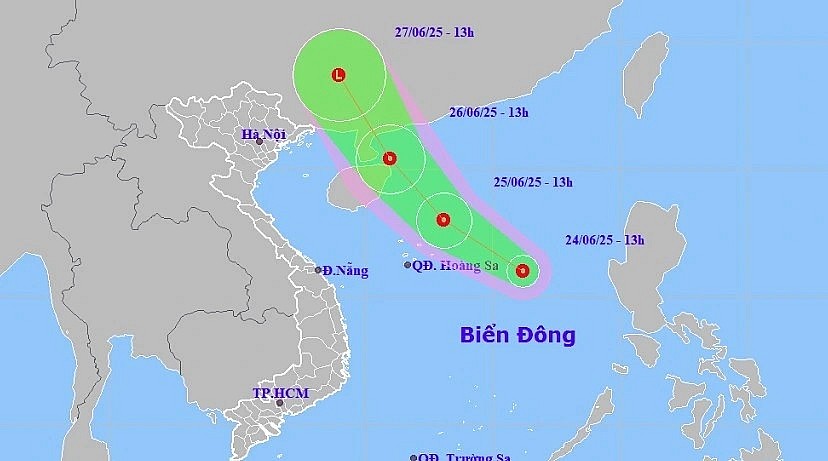 |
| Photo: VOV |
Flooding left 11 people dead in Hue City, Quang Tri, and Quang Binh; over 3,500 houses submerged; and around 88,000 hectares of crops inundated. Dozens of sites along national and provincial highways suffered landslides and flooding. Transport and aviation services were disrupted, with more than 20 flights at Da Nang cancelled or delayed. The Miss Vietnam pageant final scheduled for June 14 on the Huong River had to be postponed.
The National Center for Hydro-Meteorological Forecasting described Wutip as a particularly unusual and extreme storm, rarely seen in the history of central Vietnam’s meteorological records. It was the first storm to appear in the East Sea during June in over 40 years, and the first to trigger such extreme rainfall in the central region during this month since 1952. The storm’s circulation caused an unusually early and severe flood, with water levels in many areas reaching the highest point in June over the past 30 years.
This year, 11 to 13 storms and tropical depressions are expected to form in the East Sea, of which five to six may directly impact mainland Vietnam. The northern region faces high risk from July to September, while the central and southern regions are most vulnerable from September to November.
Five decades of friendship to elevate Vietnam – Mozambique ties: diplomat
With a solid foundation of 50 years of strong relations, and with the continued commitment of both governments, businesses and people, Vietnam and Mozambique hold the potential to elevate their bilateral relationship to new heights in the time to come, Vietnamese Ambassador to Mozambique Tran Thi Thu Thin has affirmed.
In an interview granted to Vietnam News Agency correspondents in Africa to mark the 50th anniversary of the countries’ diplomatic ties (June 25, 1975 – 2025), the ambassador expressed confidence in the future of bilateral cooperation.
Mozambique, she noted, possesses abundant natural resources and holds a strategic geopolitical position in southern Africa. It also boasts fertile land, a young population, and is currently undergoing reform. Meanwhile, Vietnam is a dynamic developing country with extensive experience in agriculture, construction, telecommunications, education, public healthcare, and poverty reduction – areas that complement Mozambique’s development priorities and offer promising opportunities for expanded collaboration, VNA reported.
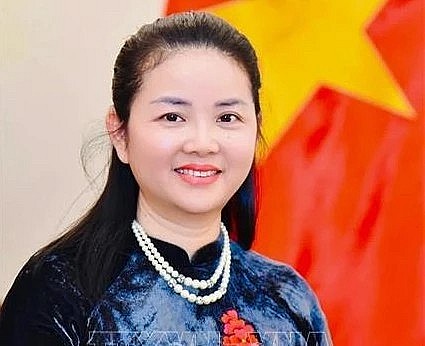 |
| Vietnamese Ambassador to Mozambique Tran Thi Thu Thin (Photo: VNA) |
According to the diplomat, in agriculture, a Vietnamese-implemented project to develop crop production in central provinces of Mozambique has produced sound outcomes in improving seed quality and yields. This success lays the groundwork for the model’s expansion to other localities, contributing to sustainable agricultural development and food security in the African nation.
In telecommunications and digital transformation, Movitel – a telecommunications joint venture of Vietnam’s Viettel Military Industry and Telecoms Group in Mozambique – stands as a symbol of Vietnam’s business success in Africa. With the Mozambican Government accelerating its digital agenda, Vietnamese enterprises can tap into areas such as digital financial services, distance learning, and e-government solutions, Thin suggested.
On education, healthcare, and human resources, Mozambique holds Vietnam’s development model in high regard. The two nations could enhance cooperation through scholarship exchanges, vocational training programmes, and the deployment of Vietnamese medical experts to support disease prevention and community healthcare in Mozambique.
The ambassador also pointed to the potential for further collaboration in security and defence, including peacekeeping experience sharing, officer training, and joint efforts to combat transnational crime. In addition, cultural, artistic, tourism and people-to-people exchanges should be promoted to deepen mutual understanding and connection.
On multilateral platforms, she said Vietnam and Mozambique share a common stance on upholding peace, respecting international law, and promoting the role of developing countries. They are set to continue to coordinate closely at the United Nations, Non-Aligned Movement, Group of 77, and other South-South cooperation mechanisms.
Thin went on stressing said both countries are working closely to organise a series of commemorative events throughout 2025, reflecting a spirit of historical respect and forward-looking partnership.
To sustain strong and substantive bilateral growth, the ambassador recommended reinforcing the political and diplomatic foundation through regular high-level visits and the maintenance of bilateral cooperation mechanisms such as their inter-governmental committee and political consultations.
She also highlighted the need to prioritise economic and trade cooperation, further investment ties, and expand joint work in agriculture, education and healthcare.
She shared that for 2025 and beyond, the two sides have identified key cooperation priorities, including the continued implementation of existing frameworks and the expansion of ties into new areas such as renewable energy, construction, IT and digital transformation.
Vietnam eases citizenship rules for foreign experts, returning nationals
Vietnam’s National Assembly has approved an amendment to the Nationality Law, easing citizenship procedures for foreign investors, scientists, and former Vietnamese nationals seeking to regain their nationality.
Under current legislation, foreigners and stateless individuals applying for Vietnamese citizenship must meet strict requirements, including permanent residency status and a valid permanent resident card, as well as proof of relinquishing foreign nationality that may affect their rights abroad.
The new law streamlines the process, particularly for high-caliber professionals such as investors, scientists, and experts, allowing them to acquire Vietnamese citizenship under more favorable terms.
Applicants who have made significant contributions to Vietnam’s national development or provided benefits to the Vietnamese state will now be exempt from many prior legal requirements. These individuals may retain their foreign nationality if they meet conditions similar to those with Vietnamese relatives and receive presidential approval. Those living abroad can apply through Vietnamese embassies.
Simplified path to restore Vietnamese nationality
For individuals who have lost their Vietnamese citizenship and wish to regain it, the revised law removes all previous eligibility conditions. Previously, one had to meet one of six criteria, such as returning to reside in Vietnam, having Vietnamese relatives, or having once renounced Vietnamese citizenship without acquiring a new one.
Now, any former Vietnamese national can apply for restoration of citizenship, and applications will be considered on a case-by-case basis, cited VNN.
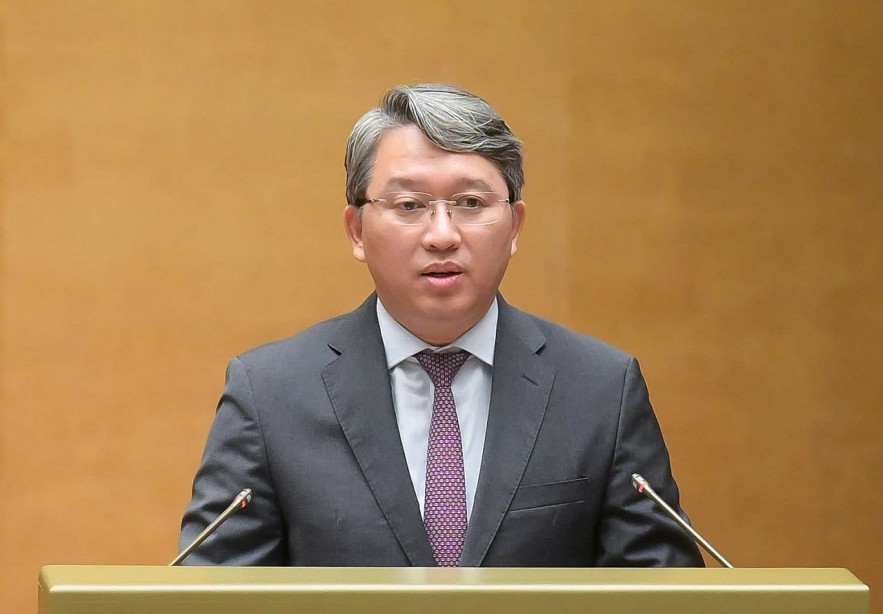 |
| Minister of Justice Nguyen Hai Ninh presents the revised law before the National Assembly. Photo: National Assembly |
Responding to feedback from lawmakers, the revised law allows individuals applying for Vietnamese citizenship = while retaining their original nationality = to combine Vietnamese and foreign names, enhancing international integration. Applicants will no longer be required to adopt fully Vietnamese names.
Single nationality for key roles in government and security
The law still enforces a single nationality policy for sensitive positions. Candidates nominated or appointed to posts in the Communist Party, state agencies, the Fatherland Front, political-social organizations, and core security forces must solely hold Vietnamese nationality and reside in Vietnam.
Civil servants and public employees are also required to hold only Vietnamese citizenship unless an exception benefits the Vietnamese state and does not harm national interests. These conditions will be clarified in further government regulations.
The government emphasizes that individuals in armed forces and key government positions must show absolute loyalty to the nation, justifying the single nationality requirement, while exceptions will remain possible for public servants with outstanding expertise valuable to the country.
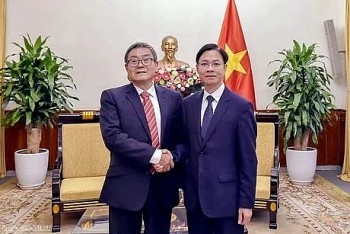 | Vietnam News Today (Jun. 21): Vietnam, China Intensify Experience Sharing in Diplomatic Affairs Vietnam News Today (Jun. 21): Vietnam, Cambodia strengthen trade cooperation; OECD outlines reform roadmap in 2025 Vietnam economic survey; Vietnam, China intensify experience sharing in ... |
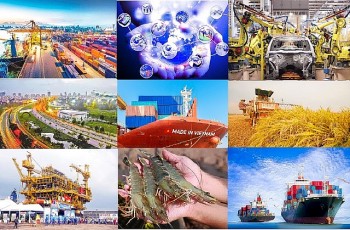 | Vietnam News Today (Jun. 22): Vietnam Makes Remarkable Economic Progress Over Past Decades Vietnam News Today (Jun. 22): Vietnam re-elected to UNESCO Convention’s Intergovernmental Committee; Vietnam, Japan's Kyushu region explore labor cooperation opportunities; “Enjoy Da Nang 2025” opens ... |
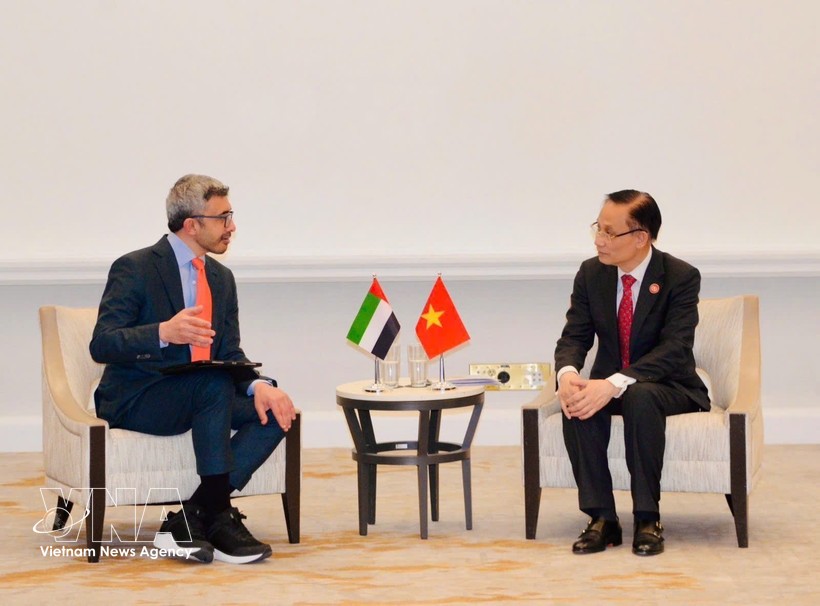 National
National
Vietnam News Today (Feb. 22): Vietnamese FM Meets Counterparts of UAE, Egypt and Türkiye
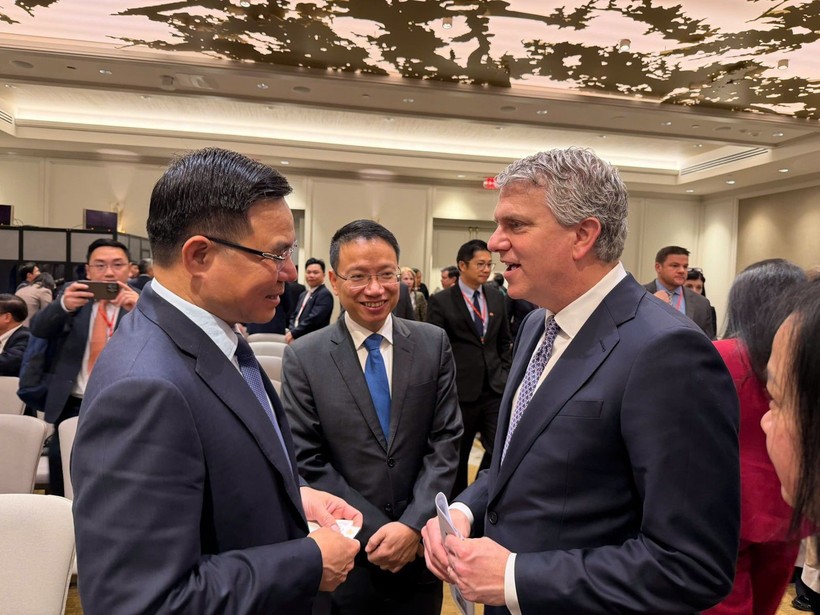 National
National
Vietnam News Today (Feb. 21): Vietnam, US Step Up Dialogue to Facilitate Trade Ties
Recommended
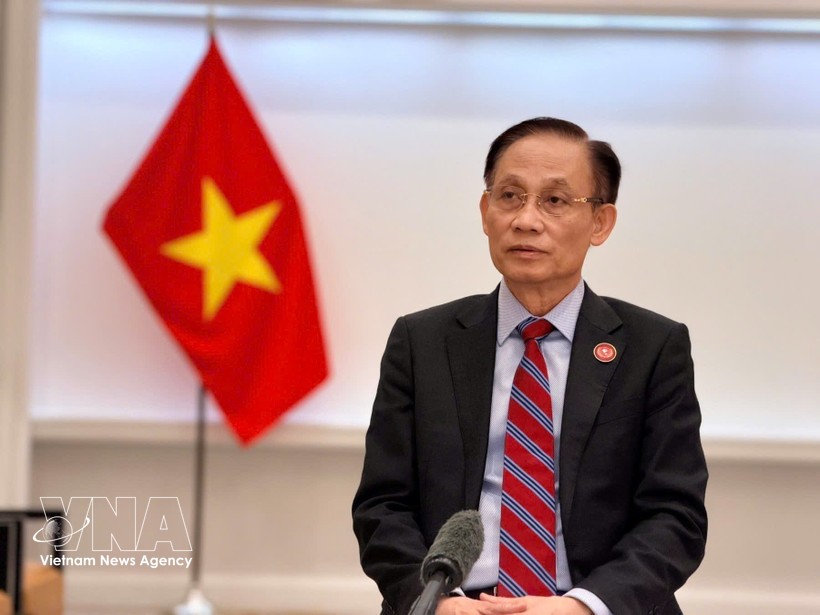 National
National
Party Chief’s US Trip Marks Milestone in High-level Multilateral Diplomacy: FM
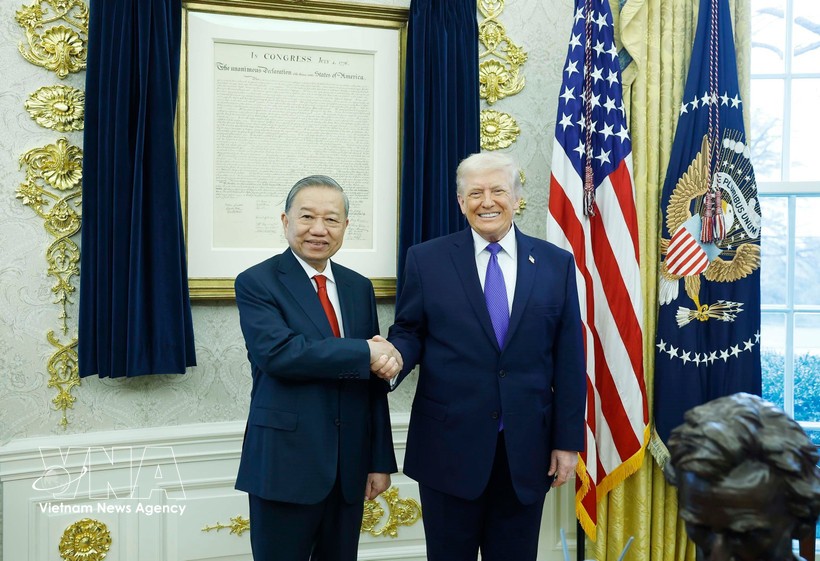 National
National
Party General Secretary To Lam Meets US President Donald Trump at White House
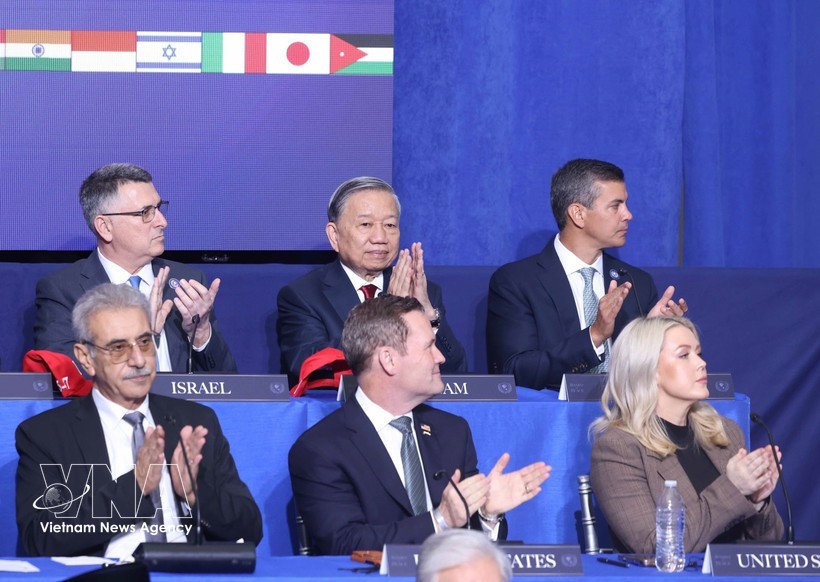 National
National
Party General Secretary To Lam Attends Inaugural Meeting of Gaza Board of Peace in US
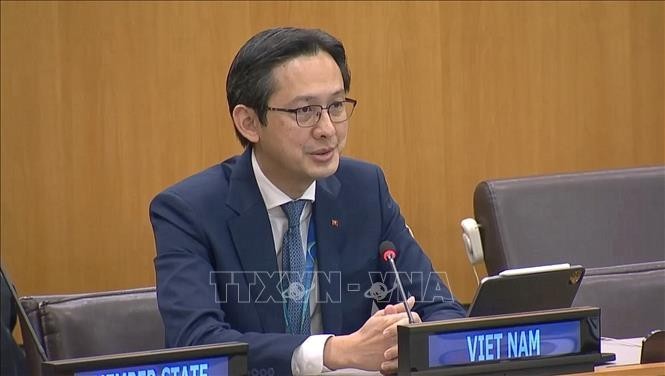 National
National
Vietnam Promotes Multilateral Dialogue on Nuclear Non-proliferation Ahead of the 2026 NPT Review Conference
 National
National
Vietnam News Today (Feb. 22): Vietnamese FM Meets Counterparts of UAE, Egypt and Türkiye
 National
National
Vietnam News Today (Feb. 21): Vietnam, US Step Up Dialogue to Facilitate Trade Ties
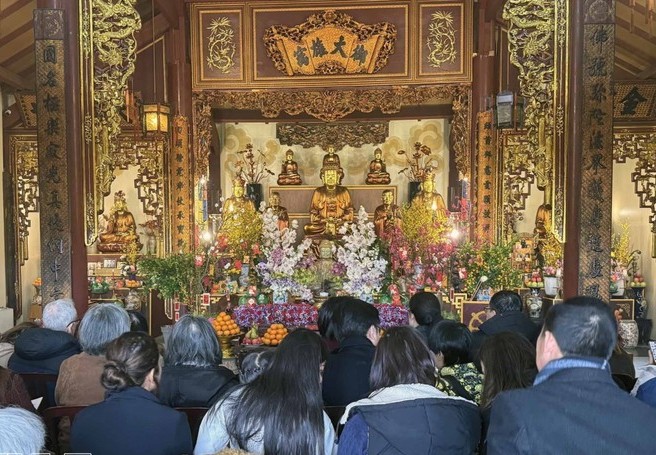 National
National
Vietnam News Today (Feb. 19): Vietnamese in France Cherish Traditional Practices During Tet
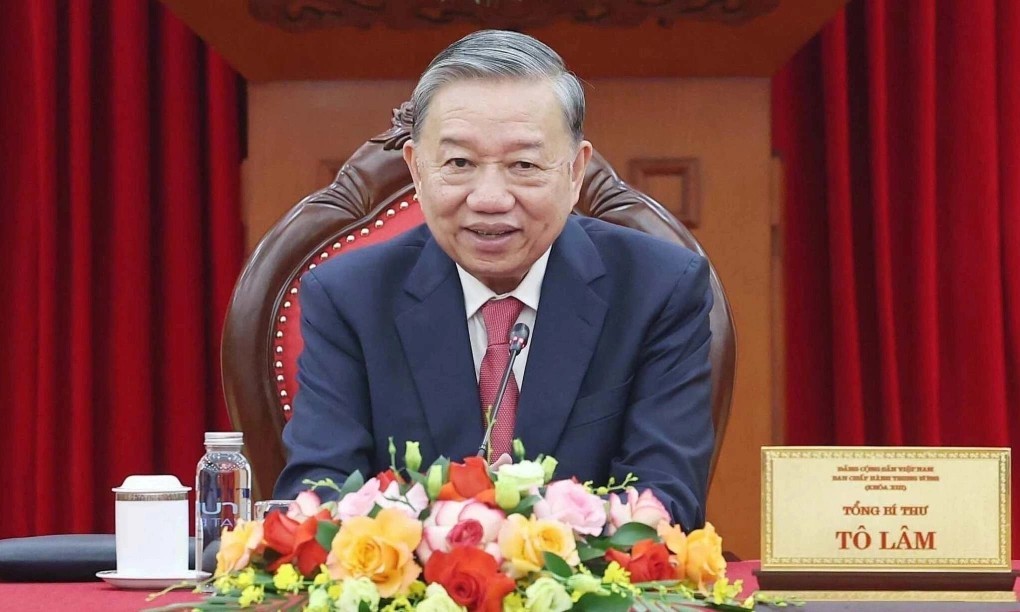 National
National

